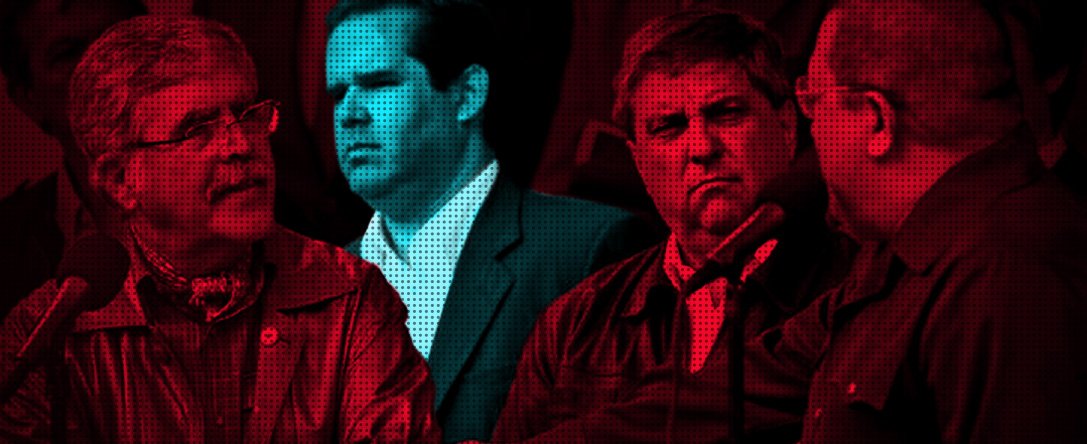
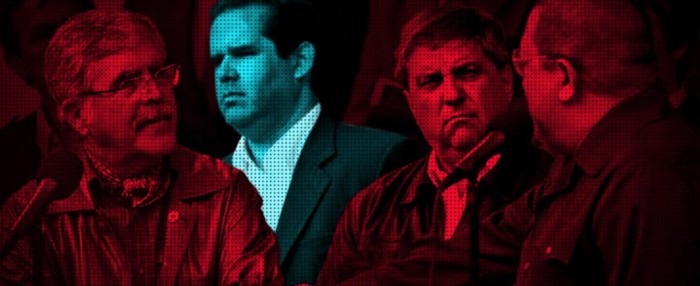
Without leaving a trace, José María Olazagasti, the obscure lieutenant of the Kirchnerist Minister of Planning, Julio De Vido, disappeared. Olazagasti, from the shadow, and De Vido, in public, both were the architects of the golden age of trade agreements between the Pink House and the Miraflores Palace. Most of these deals show no visible work, and some of them are the starting points of legal cases that begin to spread around in Argentina. The personal secretary was the one who managed with whom to meet and for what business.
|
Getting your Trinity Audio player ready...
|
"Mysterious, quiet, and ambitious;" little is known about him, how he operated. He hardly talked with the media when he was with Julio De Vido, the powerful and controversial Minister of Planning of the governments of Néstor Kirchner and his widow, Cristina Fernández de Kirchner, who also became the business ambassador of Buenos Aires in Caracas. Even though he is the right hand —the agenda, the ears, an even the treasurer of insulin, as a newspaper from La Plata says— of Minister De Vido, and was promoted from personal advisor to the Ceremonial Director, with duties that are virtually the same as those of a Secretary of State, José María Olazagasti is almost a ghost, which few speak of because they know little or out of fear, or in other cases, for considering him a "marginal character" within the Kirchner government and a traitor. Although on the sidelines, apart and in the background, Olazagasti was the one who managed to take certain businessmen from his country to negotiate with the Bolivarian Government in his multiple trips to Caracas. Tango and salsa that mixed in the Venezuela-Argentina trust and that were music for his pocket and a change in the rhythm of life of this entrepreneur of Basque origin.
Villa Lugano is the second largest neighborhood in the city of Buenos Aires, a sort of 23 de Enero in Buenos Aires -as the politically active working-class neighborhood of Caracas-, a Peronist bastion of the Federal Capital. This was the place that saw in 1974 the birth of the son of "El Vasco Olazagasti," a historical leader of the Justicialism. The father was a friend of Julio De Vido, now a national deputy, with whom he was in a local party headquarters. "He comes from a very low social level. Even in 2002, before Néstor Kirchner came to power, he asked for work to Argentine businessmen because he was just starting out and he was a very humble guy," says journalist Francisco Olivera, of La Nación newspaper, and author, together with Diego Cabot, of the book “Hablen con Julio” (2011).
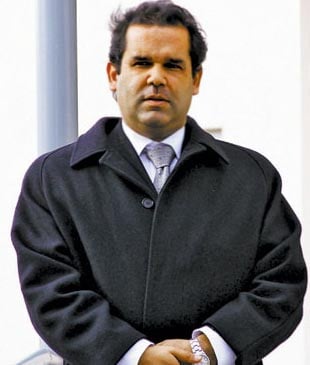
José María, "chubby, short and low profile," as described by another Argentine journalist, in 2006 began to be active in Commitment K, a group to support the reelection of Néstor Kirchner. But the melody changed for him before, when Julio De Vido called him to be his personal advisor after he was appointed as Minister of Planning in 2003. Then, they would start their trips to Venezuela.
Olazagasti was promoted from a minor position, as advisor, secretary, to Ministry Ceremonial Director. His position was not assigned in the Official Gazette. Hence, there is no obligation to declare his personal assets and earnings to the Anticorruption Bureau (thus, he could be released now from any conviction from justice). His position corresponds to a category C of the Administrative Profession System, based on the labor scale of Argentina, for which he should charge between 3,000 and 4,000 (198-264 US dollars). However, the man from Villa Lugano seems to have managed to develop and make ends meet. In a 2010 report from La Nación newspaper says that at that time, he lived in Villa Nueva del Tigre country (closed neighborhood), "it is not the most exclusive, but it is a high cost for a category C employer", highlights the press release. It also refers to the monthly fee of a school in the private neighborhood of Nordelta "the monthly fee of which is no less than 2500 pesos (or around 165 dollars)." These are places in the delta of the Paraná River that since its flows into Río de la Plata, near Buenos Aires, it has become a suburb of well-to-do classes in the Argentine capital.
"He is discreet, but eats at fine places, drives nice cars, he is guarded. He is like a secretary, but more than a secretary. He is someone next to a minister, but with much power," says Rodrigo Alegre, a journalist of Channel 13 in Buenos Aires.
How could he do it from a position as secretary? "He had links with the public work. He went from being a secretary to having a lot of power, influencing politics and getting involved in business. He was in charge of the papers, De Vido’s agenda, the meeting with businessmen," says Alegre. He became the minister's main operator and, with the international trips, he began negotiating as a Secretary of State and closing agreements with Venezuela, Ecuador or Algeria. Although, all the consulted sources agree, he did not sign anything, he did not declare anything, so his track can only be guessed from the visits he made, for example, to the Venezuelan capital.
After Antonini Wilson's valijagate or suitcase scandal, Claudio Uberti, director of the Órgano de Control de Concesiones Viales (OCCOVI), the federal agency that regulates highway concessions, and coordinator of the Argentina-Venezuela agreement, the so-called Financial Series II Trust or, as it is known in Argentina, PDVSA II, was remove from his position in December 2007. At that time, the already empowered Olazagasti, takes more power and is in charge of business abroad.
"All the Argentine businessmen knew that by talking and meeting with him, they did it directly with De Vido. Being someone with little training, without a degree, and who did not know what a liter of gas was, he ended up with the most important businessmen in the Argentine energy sector. He had massive power and his wealth significantly grew," says Olivera.
It is estimated that since the fall of Uberti, Olazagasti made 42 trips abroad. Through documents from sources of the Public Prosecutor's Office of Argentina, to which Armando Info had access, at least 15 trips of the Ceremonial Director to Venezuela could be verified.
Olazagasti only traveled by order of Julio De Vido, says Rodrigo Alegre. The first flight that has been recorded was on April 5, 2004, a trip he made with the minister and Uberti. He would travel again with the same company on May 28, coinciding with the signing of the trust. That year, he made at least another trip from June 3-6, along with Uberti and Victoria Bereziuk, who was also a passenger of the private flight of Antonini Wilson. They were given 89, 118, and 110 dollars as travel allowance, respectively, as well as 46 dollars for health insurance.
On November 22, 2005, the Official Gazette announced with retroactive effect the official trip of the trio De Vido-Olazagasti-Uberti, from November 20 to 22, this time to Puerto Ordaz, state of Bolivar, the capital of heavy industry in Venezuela, a trip that was also attended by President Kirchner, and where they met with Hugo Chávez. On that occasion, one of the visits made by the presidents included the hydroelectric dam of Macagua, on the Caroní River in the middle of the city, "a sign that in that summit the energetic cooperation was discussed or was to be discussed," BBC World said.
With similar delay, another announcement was made in the Official Gazette of July 7, 2006, for a trip of the same triplet, which was in Caracas from July 3 to 5. The sixth trip on record was made on March 5-8, 2008, with Cristina Fernández as president, who was in the delegation along with De Vido, her right hand, and presidential spokesman Alfredo Scoccinarro, bound for Caracas with stops in the Dominican Republic and Haiti for the XX Summit of the Rio Group. Again, the announcement was made in the Official Gazette two days after starting the trip.
The peculiarity of the following trips, in addition to knowing that José María Olazagasti traveled to Caracas, is that either he shared flight or coincided in the capital with Juan José Levy, the businessman who faces several criminal cases for alleged money laundering and smuggling, and who appeared as the owner of offshore companies in the investigation of the so-called Panama Papers. In 2009, they were both in Caracas on August 10-12. The following year, on April 16, they shared the flight of Aerolineas Argentinas from Buenos Aires to Caracas. Levy participated in the sale of medicines to Venezuela, as well as the digital television system that the Government of Nicolás Maduro eventually adopted.
Levy denies to the Justice knowing the secretary, but according to Olivera, they do know each other, "their children are school mates at a Northland school, a district of Buenos Aires. And precisely those flights and that meeting are the few things that are known about Olazagasti that are in the hands of Justice."
In 2012, they coincide again, first between March 20 and 23 and then in September. It is on this date that it seems that a third person joined the dance, because he shared a round trip Buenos Aires-Caracas from the 14th to 19th, with Olazagasti and one more passenger, Minister De Vido, as evidenced in the Customs records. The same queer tango trio, and apparently the last, is repeated on March 19, 2013. Olazagasti and Levy will be back in Caracas in March and April 2013 and in May 2014.
"He arranged connections with businessmen of both countries for him, some Argentines who are here (Argentina), but there is no certainty about who they were."
What businesses did Olazagasti in Venezuela, with whom he met, what money, which businesses were made? At this moment, the music lowers its decibels until it becomes almost inaudible. Nobody knows with certainty. Olazagasti, says Rodrigo Alegre, traveled only at the urging of Julio De Vido, "He arranged connections with businessmen of both countries for him, some Argentines who are here (Argentina), but there is no certainty about who they were." And he explains that, apparently, he played a leading role in the trust with the Venezuelan state oil company Pdvsa, "several trips were intended to plan it."
In Olazagasti's melody, and how he got rich there is also a moment when the volume is high, very loud, and becomes noise. It is something that everyone hears, but nobody can specify. "Everybody knows. The businessmen have said that they paid a commission to get those businesses with Venezuela. One of those who told me, who died, was in the trust and said that you had to pay to enter," says Francisco Olivera. The Argentine media reported that the commission charged to each company was 15% of the contract in US dollars. But there is not much transparency, and it is now, with the change of administration in the hands of Mauricio Macri since December 2015, when the scores begin to be cut.
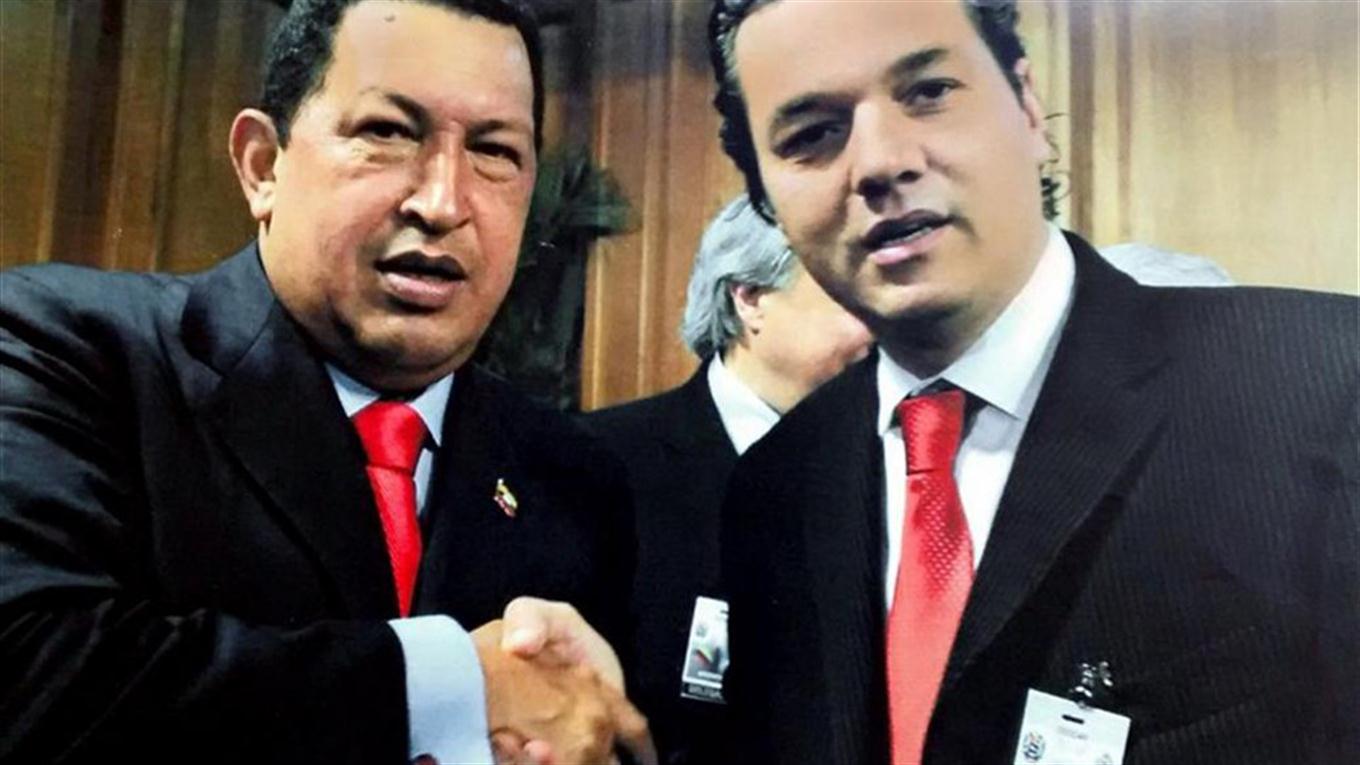
Not even from the Venezuelan Argentine Chamber of Commerce (Cavenarg), based in Caracas, they say they know about the business. Benjamin Tripier, president of Cavenarg, says that he never saw Olazagasti, "he was not even close to the Chamber. I know him from the press. There was no deal with the Chamber. We were in another dimension. We knew what was happening, the Government contracts, but that was it. We do not know if any registered company had to do with that. They (the Government) had no interest in us neither we in them. They had their own circuit." As to the trust, Tripier assures that "it was something very selective, which not everyone had access to. I do not know if there was any genuine business there and I think that the one who did those things did not say much, and one understands, because it was not very close to what transparent business could be." And he assures that what he says now is the same he knew back then, "we never had to participate in a meeting where De Vido or Olazagasti were present."
In a contact by email with Eduardo Alberto Sadous, who was ambassador from 2002 to 2005, he refused to have an interview about Olazagasti. "Unfortunately, I cannot help you, because during my administration, Olazagasti was nothing more than the secretary of Julio De Vido, the minister. After Uberti and the Antonini Wilson episode, he became a 'parallel ambassador', but I had already left my position."
The statements of Sadous about the secretary and the movements in the embassy are available in the documents of the Public Prosecutor's Office of Argentina, which we have access to for this press release. From his testimony it is clear that "the embassy was informed of the arrival and departure of the officials only. It did not participate in most of the meetings held with the different Venezuelan government agencies, especially with the Ministry of Energy and PDVSA, the head of which was Rafael Ramírez." Not even Ambassador Sadous was in charge of receiving them, but Álvarez Tufillo, former economic and commercial advisor of the embassy in Venezuela.
"The visits of Minister De Vido and Uberti were considered official. They were visits by officials, but did not require protocol treatment. They were work visits."
The visits of Minister De Vido and Uberti were considered official. In a broad sense, they were visits by officials, but did not require protocol treatment. They were work visits." Sadous testifies that he did not even obtain a copy of the agreement entered into by and between PDVSA and the Federal Planning Ministry and, as to the mechanism by which Argentine companies were authorized to participate in the agreement, he has no evidence "that there was any special system or mechanism," he ignores how they were selected.
Neither Carlos Cheppi, ambassador in the Caribbean country from 2001 to 2015, wanted to talk about that matter. "Good evening. Excuse me. I do not give interviews. Thank you," was all he said when contacted by instant messaging.
"Good afternoon, Mr. Olazagasti. I'm making a profile about you and I'd like to interview you. I hope I can count on your assistance. Regards." An hour later, the two whatsapp tick marks change to blue. "Hi, 2 or 3 times I was asked about that person. This is not his telephone number." After confirming with several people, it is corroborated that the number belongs to José María Olazagasti. We insisted on the identity of the person behind the phone screen, the blue tick remain, but there is no answer until after a while. The person calls.
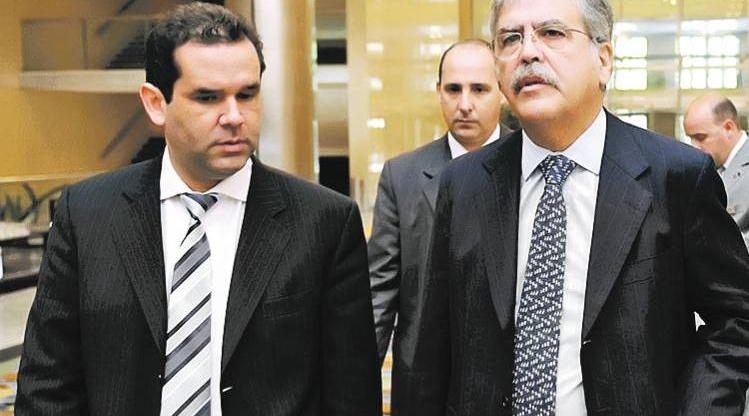
"I'm not that man. I'm Rodrigo Vaquerizo, music producer. I'm sure this is some friends who are playing a joke on me. I do not know who you're talking e about." The name is sought but there is no trace of someone in the world of music with that name in Argentina. It is corroborated again with several Argentine journalists that the number belongs to Olazagasti. "Maybe the profile picture has been changed - a very low resolution photo of an empty stage, half mounted and with the lights on - but that is definitively his number," they confirm on the other side of the phone. We insisted again on the identity. A new call.
Otros Aires was born in 2003 in Barcelona (Spain), designed by Argentine musician Miguel Di Genova. While the forerunners of the Neotango genre were Malevo, followed by Gotan Project - then Bajofondo - the Di Genova band quickly achieved worldwide fame. But there is no trace of Rodrigo Vaquerizo or his relationship with electronic tango. We called again to the telephone number and it was disconnected.
This real or fictitious alter ego has at least something in common with De Vido's right hand, production and music. Marmot Producciones SRL, registered in March 2013, is a company responsible for the production of theatrical and musical shows in the Autonomous City of Buenos Aires. It is also responsible for the provision of services and organization of social, cultural, sporting, business events, and the like. Who is its manager? José María Olazagasti.
If, when he was a key player in the business of the Kirchner government, he was a man of whom little or nothing was known, when the tango-salsa mashup began to play the end, it was almost impossible to trace him. The discretion of Olazagasti reaches such a level that it later went to enlarge the ranks of the Federal Intelligence Agency, according to a publication of Noticias magazine, where he appears together with other 137 names. His spy alias matched his initials: José Oslo. A source tells that he was linked in the federal courts to clean up the cases against Daniel Scioli, governor in the province of Buenos Aires and then candidate in the last presidential elections.
Neither Cheppi nor Sadous talk about him, because "they cannot. They do not give interviews. They did not meet him". Either those who should know him well. This is the case of Alberto Fernández, in President of the Cabinet of Argentina from 2003 to 2008. He does not have much idea on the subject, nor on Olazagasti, because he never worked with him. "In the Government structure, he was a marginal character. He was De Vido's secretary only. He had no other function. If he did other things, they were not public." Even in spite of the relevance that the Ceremonial Director seems to have, he points out, "It strikes me that they have noticed him."
Why do they deny knowing him if he was responsible for coordinating one of the biggest businesses of the government of Néstor and Cristina? Because a sector of Kirchnerism considers him a traitor. José López, who was secretary of Public Works, was arrested after a neighbor of the monastery Nuestra Señora de Fátima in Buenos Aires reported that someone was throwing bags full of money from a car inside the convent. There are those who suspect that it was not a neighbor, but Olazagasti, but it is not proved.
And, now ... "He is missing. He is likely to be in Argentina," agree all the sources consulted, who also agree that as he lost political power, his link with businessmen vanished.
Adrián Perdomo Mata has just entered the list of sanctioned entities of the US Department of the Treasury, as president of Minerven, the state company in charge of exploring, exporting and processing precious metals, particularly gold from the Guayana mines. His arrival in office coincided with the boom in exports of Venezuelan gold to new destinations, like Turkey, to finance food imports. Behind these secretive operations is the shadow of Alex Saab and Álvaro Pulido, the main beneficiaries of the sales of food for the Local Supply and Production Committee (Clap). Perdomo worked with them before Nicolás Maduro placed him in charge of the Venezuelan gold.
Gassan Salama, a Palestinian-cause activist, born in Colombia and naturalized Panamanian, frequently posts messages supporting the Cuban and Bolivarian revolutions on his social media accounts. But that leaning is not the main sign to doubt his impartiality as an observer of the elections in Venezuela, a role he played in the contested elections whereby Nicolás Maduro ratified himself as president. In fact, Salama, an entrepreneur and politician who has carried out controversial searches for submarine wrecks in Caribbean waters, found his true treasure in the main social aid and control program of Chavismo, the Clap, for which he receives millions of euros.
While the key role of Colombian entrepreneurs Alex Saab Morán and Álvaro Pulido Vargas in the import scheme of Nicolás Maduro’s Government program has come to light, almost nothing has been said about the participation of the traders who act as suppliers from Mexico. These are economic groups that, even before doing business with Venezuela, were not alien to public controversy.
Even though there are new brands, a new physical-chemical analysis requested by Armando.Info to UCV researchers shows that the milk powder currently distributed through the Venezuelan Government's food aid program, still has poor nutritional performance that jeopardizes the health of those who consume it. In the meantime, a mysterious supplier manages to monopolize the increasing imports and sales from Mexico to Venezuela.
Turkey and the coastal emirates of the Arabian Peninsula are now the homes of companies that supply the main social -and clientelist- program of the Government of Venezuela. Although the move from Mexico and Hong Kong, seems geographically epic, the companies has not changed hands. They are still owned by Colombian entrepreneurs Alex Nain Saab Morán and Álvaro Pulido Vargas, who control since 2016 a good part of the Import of food financed with public funds. Around the world for a business.
Since the borders to Colombia and Brazil are packed and there is minimal access to foreign currency to reach other desirable destinations, crossing to Trinidad and Tobago is one of the most accessible routes for those in distress seeking to flee Venezuela. Relocating them is the business of the 'coyotes' who are based in the states of Sucre or Delta Amacuro, while cheating them is that of the boatmen, fishermen, smugglers and security forces that haunt them.
When Vice President Delcy Rodríguez turned to a group of Mexican friends and partners to lessen the new electricity emergency in Venezuela, she laid the foundation stone of a shortcut through which Chavismo and its commercial allies have dodged the sanctions imposed by Washington on PDVSA’s exports of crude oil. Since then, with Alex Saab, Joaquín Leal and Alessandro Bazzoni as key figures, the circuit has spread to some thirty countries to trade other Venezuelan commodities. This is part of the revelations of this joint investigative series between the newspaper El País and Armando.info, developed from a leak of thousands of documents.
Leaked documents on Libre Abordo and the rest of the shady network that Joaquín Leal managed from Mexico, with tentacles reaching 30 countries, ―aimed to trade PDVSA crude oil and other raw materials that the Caracas regime needed to place in international markets in spite of the sanctions― show that the businessman claimed to have the approval of the Mexican government and supplies from Segalmex, an official entity. Beyond this smoking gun, there is evidence that Leal had privileged access to the vice foreign minister for Latin America and the Caribbean, Maximiliano Reyes.
The business structure that Alex Saab had registered in Turkey—revealed in 2018 in an article by Armando.info—was merely a false start for his plans to export Venezuelan coal. Almost simultaneously, the Colombian merchant made contact with his Mexican counterpart, Joaquín Leal, to plot a network that would not only market crude oil from Venezuelan state oil company PDVSA, as part of a maneuver to bypass the sanctions imposed by Washington, but would also take charge of a scheme to export coal from the mines of Zulia, in western Venezuela. The dirty play allowed that thousands of tons, valued in millions of dollars, ended up in ports in Mexico and Central America.
As part of their business network based in Mexico, with one foot in Dubai, the two traders devised a way to replace the operation of the large international credit card franchises if they were to abandon the Venezuelan market because of Washington’s sanctions. The developed electronic payment system, “Paquete Alcance,” aimed to get hundreds of millions of dollars in remittances sent by expatriates and use them to finance purchases at CLAP stores.
Scions of different lineages of tycoons in Venezuela, Francisco D’Agostino and Eduardo Cisneros are non-blood relatives. They were also partners for a short time in Elemento Oil & Gas Ltd, a Malta-based company, over which the young Cisneros eventually took full ownership. Elemento was a protagonist in the secret network of Venezuelan crude oil marketing that Joaquín Leal activated from Mexico. However, when it came to imposing sanctions, Washington penalized D’Agostino only… Why?
Through a company registered in Mexico – Consorcio Panamericano de Exportación – with no known trajectory or experience, Joaquín Leal made a daring proposal to the Venezuelan Guyana Corporation to “reactivate” the aluminum industry, paralyzed after March 2019 blackout. The business proposed to pay the power supply of state-owned companies in exchange for payment-in-kind with the metal.